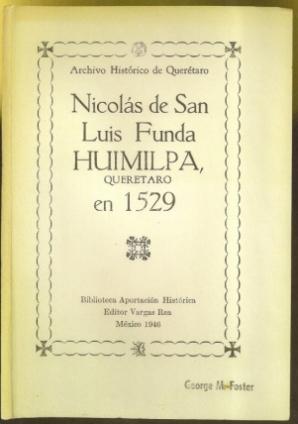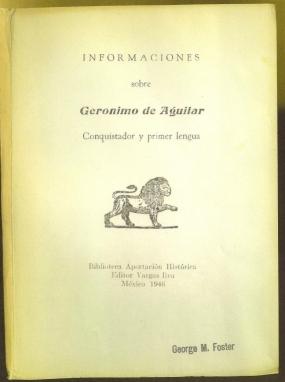luis vargas rea editor (4 résultats)
CommentairesFiltres de recherche
Type d'article
- Tous les types de produits
- Livres (4)
- Magazines & Périodiques (Aucun autre résultat ne correspond à ces critères)
- Bandes dessinées (Aucun autre résultat ne correspond à ces critères)
- Partitions de musique (Aucun autre résultat ne correspond à ces critères)
- Art, Affiches et Gravures (Aucun autre résultat ne correspond à ces critères)
- Photographies (Aucun autre résultat ne correspond à ces critères)
- Cartes (Aucun autre résultat ne correspond à ces critères)
- Manuscrits & Papiers anciens (Aucun autre résultat ne correspond à ces critères)
Etat En savoir plus
- Neuf (Aucun autre résultat ne correspond à ces critères)
- Comme neuf, Très bon ou Bon (Aucun autre résultat ne correspond à ces critères)
- Assez bon ou satisfaisant (4)
- Moyen ou mauvais (Aucun autre résultat ne correspond à ces critères)
- Conformément à la description (Aucun autre résultat ne correspond à ces critères)
Reliure
- Toutes
- Couverture rigide (Aucun autre résultat ne correspond à ces critères)
- Couverture souple (4)
Particularités
- Ed. originale (4)
- Signé (Aucun autre résultat ne correspond à ces critères)
- Jaquette (Aucun autre résultat ne correspond à ces critères)
- Avec images (4)
- Sans impressions à la demande (4)
Langue (1)
Prix
- Tous les prix
- Moins de EUR 20 (Aucun autre résultat ne correspond à ces critères)
- EUR 20 à EUR 45 (Aucun autre résultat ne correspond à ces critères)
- Plus de EUR 45
Livraison gratuite
- Livraison gratuite à destination de Etats-Unis (Aucun autre résultat ne correspond à ces critères)
Pays
Evaluation du vendeur
-
Archivo Historico de Queretaro: Nicolas de San Luis Funda HUIMILPA, Queretaro en 1529
Edité par Biblioteca Aportación Histórica, Mexico City, 1946
Vendeur : The Book Collector, Inc. ABAA, ILAB, Fort Worth, TX, Etats-Unis
Edition originale
EUR 87,76
Autre deviseEUR 5,96 expédition vers Etats-UnisQuantité disponible : 1 disponible(s)
Ajouter au panierSoft cover. Etat : Very Good. 1st Edition. 36 pages with two plates. Octavo (8 1/2" x 5 3/4") issued in original wrappers. Edited by Vargas Rea. From the library of professor George M Foster. Limited to 100 copies of which this is number 6. George McClelland Foster, Jr born in Sioux Falls, South Dakota, on October 9, 1913, died on May 18, 2006, at his home in the hills above the campus of the University of California, Berkeley, where he served as a professor from 1953 to his retirement in 1979, when he became professor emeritus. His contributions to anthropological theory and practice still challenge us; in more than 300 publications, his writings encompass a wide diversity of topics, including acculturation, long-term fieldwork, peasant economies, pottery making, public health, social structure, symbolic systems, technological change, theories of illness and wellness, humoral medicine in Latin America, and worldview. The quantity, quality, and long-term value of his scholarly work led to his election to the National Academy of Sciences in 1976. Virtually all of his major publications have been reprinted and/or translated. Provenance from the executor of Foster's library laid in. Condition: Light wear and age darkening to edges. George Foster's stamp to front wrapper and date and place of acquisition on front end paper. A better than very good copy.
-
Noticias Historicas sobre los Pueblos de Ajuchitlan, Coyuca, Cutzamala, Coahuayutla, Petatlan, Tecpan, Atoyac
Edité par Biblioteca Aportación Histórica, Mexico City, 1947
Vendeur : The Book Collector, Inc. ABAA, ILAB, Fort Worth, TX, Etats-Unis
Edition originale
EUR 197,46
Autre deviseEUR 5,96 expédition vers Etats-UnisQuantité disponible : 1 disponible(s)
Ajouter au panierSoft cover. Etat : Very Good. 1st Edition. 35 pages. Octavo (8" x 6") issued in wrappers. From the library of George M Foster. First edition limited to 100 copies of which this is number 71. The original of this manuscript is located in the National Musuem of Mexico and is in volume 182 of Fondo Franciscano. George McClelland Foster, Jr born in Sioux Falls, South Dakota, on October 9, 1913, died on May 18, 2006, at his home in the hills above the campus of the University of California, Berkeley, where he served as a professor from 1953 to his retirement in 1979, when he became professor emeritus. His contributions to anthropological theory and practice still challenge us; in more than 300 publications, his writings encompass a wide diversity of topics, including acculturation, long-term fieldwork, peasant economies, pottery making, public health, social structure, symbolic systems, technological change, theories of illness and wellness, humoral medicine in Latin America, and worldview. The quantity, quality, and long-term value of his scholarly work led to his election to the National Academy of Sciences in 1976. Virtually all of his major publications have been reprinted and/or translated. Provenance from the executor of Foster's library laid in. Condition: Foster's stamp to front wrapper. Corners bumped, spine sunned, pages age toned else a very good copy.
-
Informe de el Appco. Colegio de San Fernando de Mexico, sobre los Descubrimientos entre los 30 y 60 Grados de Latitud
Edité par Biblioteca Aportación Histórica, 1948
Vendeur : The Book Collector, Inc. ABAA, ILAB, Fort Worth, TX, Etats-Unis
Edition originale
EUR 197,46
Autre deviseEUR 5,96 expédition vers Etats-UnisQuantité disponible : 1 disponible(s)
Ajouter au panierSoft cover. Etat : Good. 1st Edition. 92 pages with fold out map. Octavo (8 1/4" x 6") issued in wrappers. From the library of professor George M Foster. Biblioteca Aportación Histórica second sieries. First edition of a limited print of 100 copies of which this is number 9. The College of San Fernando de Mexico was a Roman Catholic missionary college, or seminary (Colegio Apostolico) founded in Mexico City by the Order of Friars Minor on October 15, 1734. The institution was established to provide specific training for priests who were to labor among the indigenous populations in New Spain. George McClelland Foster, Jr born in Sioux Falls, South Dakota, on October 9, 1913, died on May 18, 2006, at his home in the hills above the campus of the University of California, Berkeley, where he served as a professor from 1953 to his retirement in 1979, when he became professor emeritus. His contributions to anthropological theory and practice still challenge us; in more than 300 publications, his writings encompass a wide diversity of topics, including acculturation, long-term fieldwork, peasant economies, pottery making, public health, social structure, symbolic systems, technological change, theories of illness and wellness, humoral medicine in Latin America, and worldview. The quantity, quality, and long-term value of his scholarly work led to his election to the National Academy of Sciences in 1976. Virtually all of his major publications have been reprinted and/or translated. Provenance from the executor of Foster's library laid in. Foster's stamp to front wrapper, wrapper edges chipped with tears, tear at front hinge extending more than half else a good to very good copy.
-
Informaciones sobre Geronimo de Aguilar. Conquistador y primer Lengua
Edité par Vargas Rea, Mexico City, 1946
Vendeur : The Book Collector, Inc. ABAA, ILAB, Fort Worth, TX, Etats-Unis
Edition originale
EUR 263,28
Autre deviseEUR 5,96 expédition vers Etats-UnisQuantité disponible : 1 disponible(s)
Ajouter au panierSoft cover. Etat : Very Good. 1st Edition. 44 pages. Octavo (8 1/4" x 6") issued in wrappers. From the library of Professor George M Foster.Biblioteca Aportacion Historica. Limited to 100 copies of which this is number 55. Gerónimo de Aguilar, O.F.M. (1489-1531) was a Franciscan friar born in Écija, Spain. In 1511 Aguilar left Panama on a caravel sailing to Santo Domingo, accompanying the procurator Juan de Valdivia. They were shipwrecked near the Yucatán Peninsula due to bad weather, but Aguilar, along with a sailor from Palos, in Spain, Gonzalo Guerrero, were two of fifteen survivors. Strong currents brought them in their ship's boat to the coast of the modern-day Mexican state of Quintana Roo. Aguilar and the others were captured by the local Maya and scheduled to be sacrificed to Maya gods. He and Gonzalo Guerrero eventually managed to escape later to be taken as a slave by another Mayan chief named Xamanzana.[1] Here he and Guerrero were able to learn the language of their captors. Aguilar lived as a slave during his eight years with the Maya. Guerrero became chief in time of war for Nachan Kaan, Lord of Chektumal, married a rich Maya woman and fathered the first mestizo children of Mexico. Hernán Cortés invaded Mexico in 1519. Aguilar joined the expedition. Speaking both Maya and Spanish, he, and La Malinche, who could speak Maya and Nahuatl, translated for Cortés during the Conquest of Mexico. His usefulness in that capacity ended once La Malinche had learned Spanish. Aguilar died in 1531 in an unknown location. His house in Mexico City later became the home of the first printing press to operate in the New World. Condition: Foster's stamp on front wrapper, spine heal and corners bumped, some age darkening to spine and edges else a very good to fine copy.





